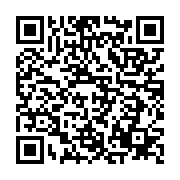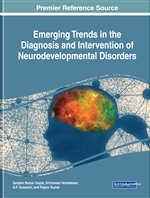Neurodevelopmental disorders encompass a group of conditions that can typically manifest during early childhood. These include intellectual disabilities, communication disorders, autism spectrum disorder (ASD), attention-deficit/hyperactivity disorder (ADHD), specific learning disorder (SLD), and motor disorders. Early identification and assessment can be a valuable tool in determining diagnosis, prognosis, functional abilities, and formulating clinical intervention for both children and adults with neurodevelopmental disorders.
Emerging Trends in the Diagnosis and Intervention of Neurodevelopmental Disorders is an essential reference source that discusses and disseminates contributions covering recent trends in diagnosis, assessment, and intervention techniques. Featuring research on topics such as clinical linguistics, neural connectivity, and animal-assisted therapy, this book is ideally designed for speech pathologists, social workers, occupational therapists, psychologists, psychiatrists, neurologists, pediatricians, researchers, clinicians, and academicians seeking coverage on neural and developmental disorder identification and strategies for clinician support and therapies.
Topics Covered
The many academic areas covered in this publication include, but are not limited to:
•Animal-Assisted Therapy
•Attention-Deficit/Hyperactivity Disorder
•Autism Spectrum Disorder
•Bio-Feedback
•Clinical Linguistics
•Eye Tracking
•Hearing Aid Technology
•Medico-Legal Aspects
•Motor Disorders
•Neural Connectivity
•Physician Research Participation
•Play Therapy
•Specific Learning Disorder
•Technological Intervention
Emerging Trends in the Diagnosis and Intervention of Neurodevelopmental Disorders is an essential reference source that discusses and disseminates contributions covering recent trends in diagnosis, assessment, and intervention techniques. Featuring research on topics such as clinical linguistics, neural connectivity, and animal-assisted therapy, this book is ideally designed for speech pathologists, social workers, occupational therapists, psychologists, psychiatrists, neurologists, pediatricians, researchers, clinicians, and academicians seeking coverage on neural and developmental disorder identification and strategies for clinician support and therapies.
Topics Covered
The many academic areas covered in this publication include, but are not limited to:
•Animal-Assisted Therapy
•Attention-Deficit/Hyperactivity Disorder
•Autism Spectrum Disorder
•Bio-Feedback
•Clinical Linguistics
•Eye Tracking
•Hearing Aid Technology
•Medico-Legal Aspects
•Motor Disorders
•Neural Connectivity
•Physician Research Participation
•Play Therapy
•Specific Learning Disorder
•Technological Intervention





